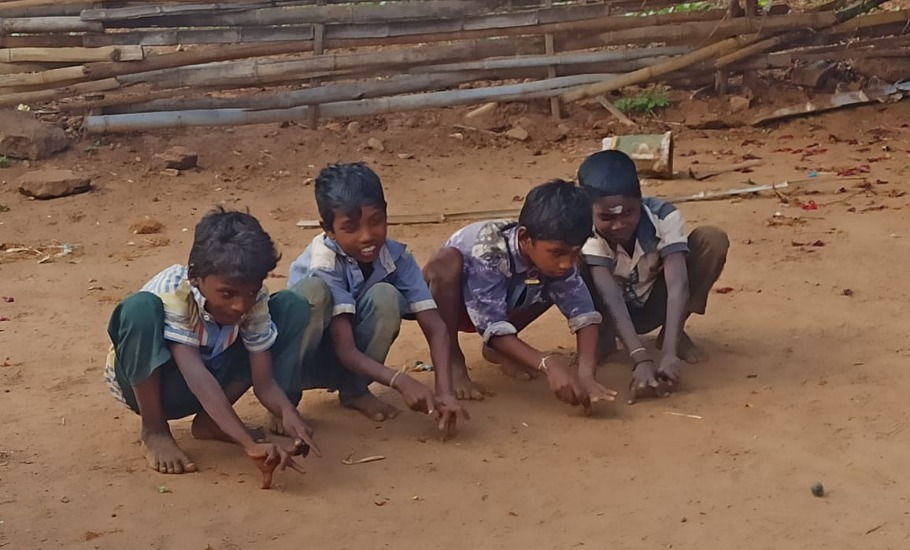
NEP threatens future education of Kerala’s tribal children
Kerala opposes the NEP on the grounds that it is detrimental to the spirit of federalism. “It only calls for centralisation, homogenisation and privatisation of education. Kerala being a state that has achieved the objective of ‘education for all’ to a great extent this new policy is forcing us to walk backwards,” says Kerala Education Minister C Raveendranath.

Deepti, a teacher at a Multi Grade Learning Centre (Popularly known as Single teacher schools) is worried about the New Education Policy (NEP). She understands that the policy recommends closing down of schools that have a strength of less than 30 students. She has only 20 students class 1 to 3.
Her school is located in a remote tribal settlement in Marayur forest division in Idukki district of Kerala. “There are nine such settlements here and nine schools. If these schools have to be closed down, these tribal children will be denied education,” says Deepti.
The NEP does not clearly state whether this is applicable to all categories of children in all states. If it is implemented as recommended by the policy, hundreds of schools “economically suboptimal and operationally complex to run” as stated in the report would be shut including that of Deepti’s.
Kerala opposes the NEP on the grounds that it is detrimental to the spirit of federalism. “It only calls for centralisation, homogenisation and privatisation of education. Kerala being a state that has achieved the objective of ‘education for all’ to a great extent this new policy is forcing us to walk backwards,” says Kerala Education Minister C Raveendranath.
Educationists also oppose the new policy. A centralised policy for all states is not a viable idea, they say. “Kerala’s scenario is not comparable to that of UP or Rajasthan. The distribution of schools with respect to the demographic pattern of Kerala is unique and different from many other states,” says Director of General Education Jeevan Babu.
For example, the suggestion in the NEP to create clusters in a particular region by closing down smaller schools would only make education non-accessible to many. “Kerala has one or more schools in a radius of one to two kilometres. We have a large mix of government as well as private schools. Creating clusters and mixing them is not practical as far as Kerala is concerned,” he added.
Related news: NEP may appear erudite, but can it help repair a school toilet?
Kerala Shasthra Sahitya Parishad, an organisation working for the promotion of science and education, dismisses the policy as it goes against the spirit of social justice. “This policy has many flaws. It is focused more on creating a work force for the capital market rather than knowledge production. There is already a gradual shift from rights based approach in education and this document expedites this process to cater to the growth of capital economy,” says Dr K N Ganesh, historian and an active member of the KSSP.
He says that the Right to Education (RTE) is being sabotaged. The new structure — 5+3+3+4 — indicates that students have to go through multiple hurdles to complete school education from the age of eight. The introduction of vocational training from the 6th standard is also introduced with an intention to create an unskilled work force of children from marginalised and weaker sections.
The recommendation to close schools with less than 30 students and to create clusters is going to be detrimental to the students in the remote villages as far as Kerala is concerned. There are 270 Multi Grade Learning Centres across the hilly and forest terrains of the state in which 90 % of students belong to the tribal communities.
Idukki, Wayanadu, Palakkad and Malappuram districts have the largest number of such schools. “Most such learning centres have less than 20 students. The idea is to reach out to the maximum population living in the remotest hills and forests,”says Santhosh, Additional Director of General Education in charge of Multi Grade Learning Centres in Kerala.
The multi-grade learning centres are a state-run project. When a central policy comes in, how far the states would have the freedom to run their own models is a worrying questions for educationists in Kerala.
“A new policy that is not even discussed in Parliament is being imposed upon states. It is a completely one sided project and is undemocratic, “ Dr Bijulal is Assistant Professor with Mahatma Gandhi University told The Federal. He said such a centralised idea of education, eradicating diversity, is a step towards fascism. He observes that the NEP is devoid of child rights enshrined in many international covenants.
“The NEP keeps the idea of social justice away from its purview,”says Bijulal. For example, caste is referred to as a social and cultural identity and not as an inhuman practice.

